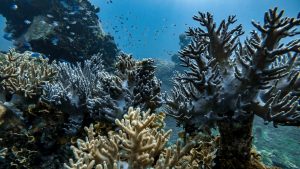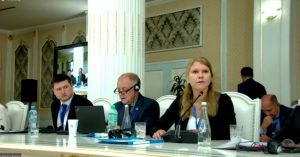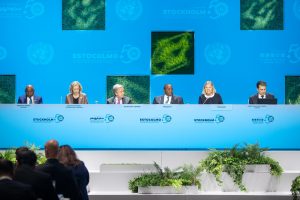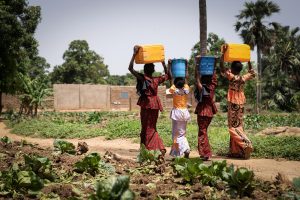Importance of water recognized during the 2021 United Nations High-Level Political Forum
From 6 to 15 July, the member countries of the United Nations gathered virtually to review the global implementation of the 2030 Agenda during this year’s High-Level Political Forum (HLPF). The importance of water for a sustainable and resilient recovery from COVID-19 was recognized in the Ministerial Declaration.
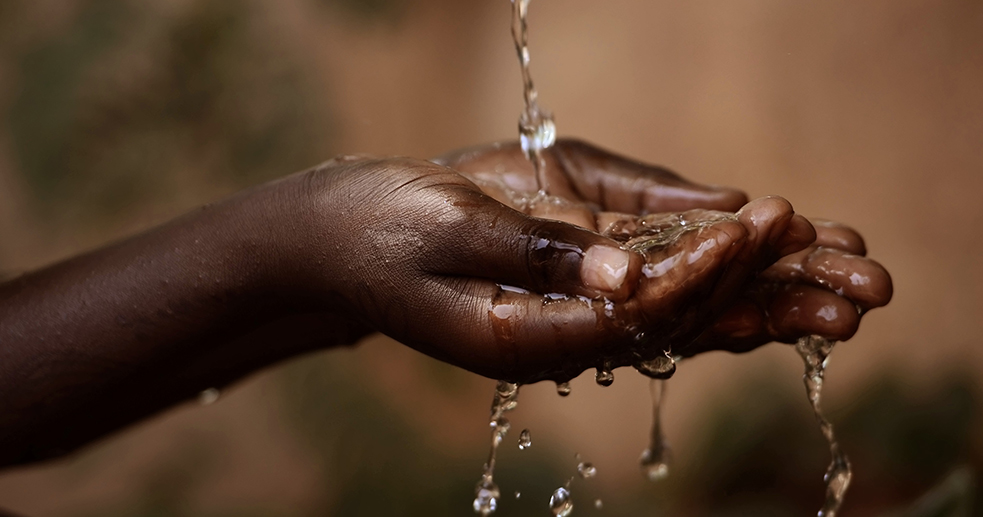
One of the The Declaration’s paragraphs, which was adopted at the end of this year’s HLPF, reads as follows:
“In order to effectively respond to and achieve sustainable, inclusive and resilient recovery from health crises such as the COVID-19 pandemic and their consequences, we need to urgently, inter alia, enhance efforts to realize the human rights to safe drinking water and sanitation, as well as ensure access to hand-washing and hygiene, and, by 2030, implement integrated water resources management, at all levels, including through transboundary cooperation, as appropriate, in order to ensure a sustainable supply of water for life, agriculture and food production and other ecosystem services and other benefits.”
The declaration clearly recognizes that water is crucial both to the immediate response and the long-term recovery from the COVID-19 pandemic – as well as for the social, economic, and environmental aspects of sustainable development. This is in line with what SIWI and other partners in the water community have long argued, and it is a very positive step that the member states of the United Nations have affirmed this in the Declaration.
While SDG 6 was not one of the goals under review this year – meaning it was not the topic of any official session – SIWI and other partners in the water community made sure to raise water issues in other sessions during the HLPF. For example, SIWI convened a side-event on Valuing Water for a Sustainable and Resilient Recovery together with the French Water Partnership and the Government of the Netherlands. The event highlighted all three aspects of sustainable development (economic, social and environmental), with an added focus on the importance of recognizing indigenous peoples’ knowledge and rights, and on how to incorporate the environmental and social values of water into the economic calculi.
The main water-related highlight during this year’s HLPF was the SDG 6 Special Event, a side-event organized by UN-Water, which presented the SDG 6 Capacity Development Initiative. The initiative aims to help national governments identify and fill gaps in their water and sanitation capacity, in support of their implementation of SDG 6 and other water-related goals in the 2030 Agenda. The event also highlighted good practices and projects that serve to accelerate the implementation of the SDGs, one of which was SIWI’s Accountability for Sustainability program. This program strives to improve the sustainability of water and sanitation services by generating knowledge on the importance of the enabling environment, accountability, and sustainability in WASH service delivery – and by implementing those learnings in country level programs.
While these events, as well as the Ministerial Declaration itself, raised the importance of water, the topic was relatively absent from the rest of the HLPF. In future years, it is crucial that more effort is put into highlighting the connections between SDGs across the 2030 Agenda, including the goals not under review in that specific year. Water flows through the entire 2030 Agenda and a successful achievement of all SDGs depends on water. Therefore, water should be addressed and treated as the natural connector of the goals.
